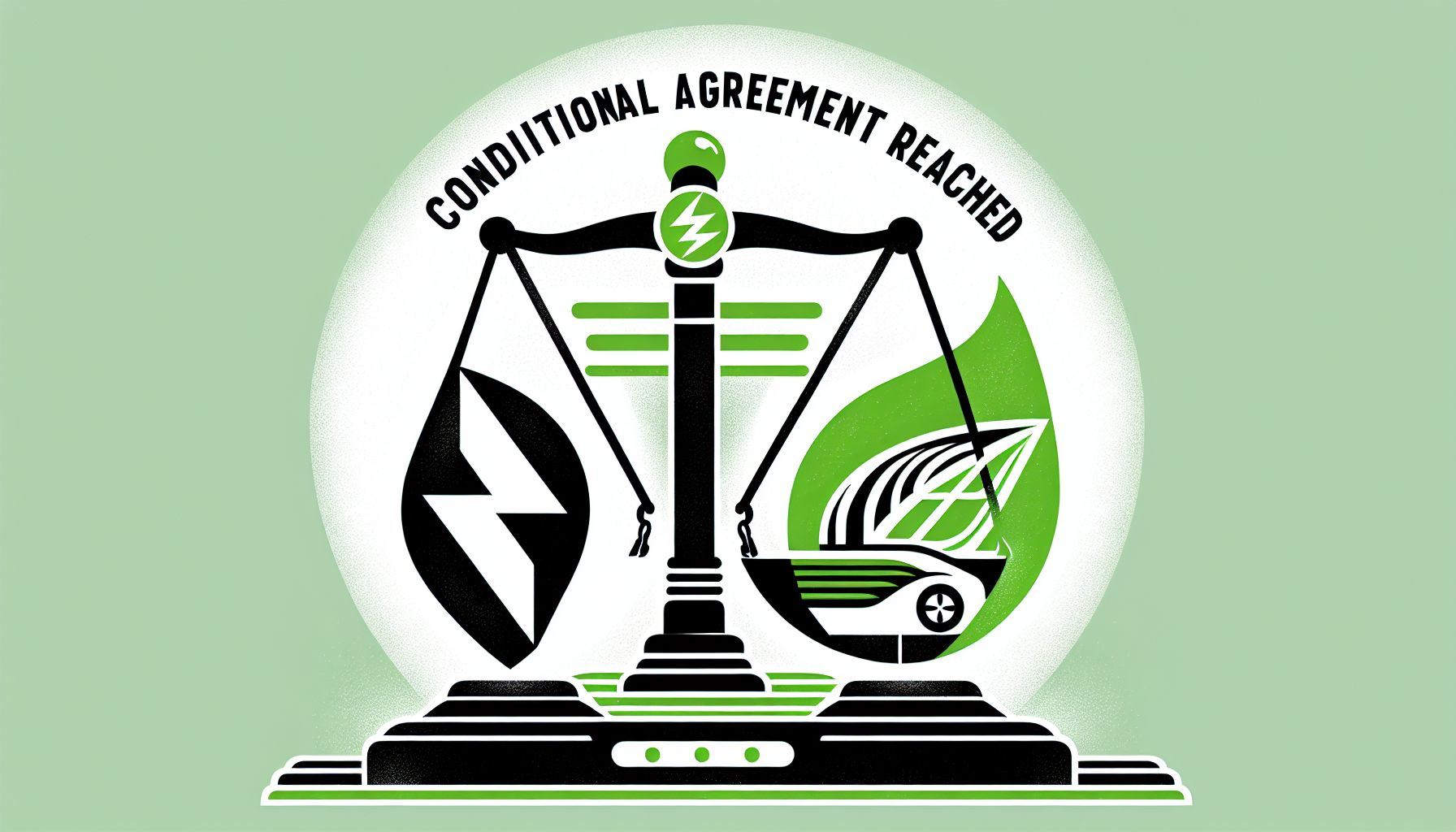
Tesla and Rivian Close to Settlement in Trade Secrets Lawsuit
Tesla and Rivian, two leading entities in the electric vehicle (EV) sector, seem to be nearing a resolution in a protracted legal dispute that has lasted four years. The lawsuit initiated by Tesla in 2020 accused Rivian of luring away its employees with the aim of obtaining trade secrets. A conditional settlement has reportedly been achieved, indicating a possible conclusion to the conflict. Below, we outline the essential aspects of the case, its repercussions for the EV market, and what this entails for both companies going ahead.
Overview of the Tesla vs. Rivian Lawsuit
The Claims Against Rivian
In 2020, Tesla initiated legal action claiming that Rivian encouraged ex-Tesla employees to pilfer confidential data during their transition to positions at Rivian. Tesla asserted that three individuals were discovered taking “highly valuable, confidential information” associated with its operations and technologies. These claims depict a scenario of corporate espionage, with Tesla maintaining that Rivian sought to gain an unfair edge in the swiftly expanding EV landscape.
Rivian’s Response
Right from the start, Rivian refuted the accusations, labeling them “groundless.” The company stated it had no interest in Tesla’s trade secrets and had established strict measures to safeguard proprietary information. Rivian even submitted a motion to dismiss the lawsuit, but a California judge rejected this request earlier in 2023, deciding that the case would continue to trial.
The Conditional Settlement
What Is Meant by a Conditional Settlement?
A conditional settlement usually indicates that both parties have consented to resolve the issue, but certain conditions must be fulfilled before the case can be formally closed. While the specific terms of the Tesla-Rivian settlement have not been revealed, Tesla has suggested it intends to pursue case dismissal by December 24, 2023.
Steering Clear of a Protracted Trial
The trial for this lawsuit was initially anticipated to occur in 2025, yet the conditional settlement indicates that both companies are keen to avoid the time, cost, and possible reputational harm associated with an extended legal dispute. For Tesla, this resolution may enable the firm to concentrate on its primary business activities, while Rivian can continue its efforts to carve out a significant position in the EV arena.
Consequences for the Electric Vehicle Industry
Rivalry within the EV Sector
The Tesla-Rivian lawsuit underscores the fierce competition in the EV industry, where innovation and intellectual property are pivotal for success. As businesses rush to create state-of-the-art technology, safeguarding trade secrets has become a crucial theme. This case serves as a reminder of the necessity for ethical hiring practices and strong measures to avert the misuse of proprietary information.
Rivian’s Ascendancy
Rivian has positioned itself as a formidable rival to Tesla, fueled by its emphasis on electric trucks and SUVs. The company’s R1T pickup and R1S SUV have attracted considerable interest, and Rivian has also formed significant partnerships, such as a deal to manufacture electric delivery vans for Amazon. Settling the lawsuit with Tesla could bolster Rivian’s standing and draw more investors.
Conclusion
The Tesla-Rivian lawsuit highlights the significant stakes within the electric vehicle sector, where innovation and intellectual property reign supreme. Although the conditional settlement suggests that both companies are poised to move forward, the case serves as a cautionary example for organizations maneuvering through the competitive terrain of emerging technologies. As Tesla and Rivian concentrate on their respective objectives, the conclusion of this legal fracas may signify a new era for both firms—and for the EV sector as a whole.
Q&A: Key Questions Regarding the Tesla-Rivian Lawsuit
1. What were Tesla’s primary allegations against Rivian?
Tesla charged Rivian with encouraging former Tesla workers to misappropriate confidential data and trade secrets as they transitioned to new roles at Rivian. Tesla asserted that three employees were found taking “highly valuable, confidential information.”
2. How did Rivian react to the allegations?
Rivian refuted the claims, deeming them unfounded. The company declared it had no interest in Tesla’s trade secrets and had policies in place to safeguard proprietary information from misuse.
3. What constitutes a conditional settlement?
A conditional settlement represents an agreement to settle a legal disagreement, yet certain requirements must be satisfied before the case can be formally dismissed. In this instance, Tesla aims to seek dismissal of the lawsuit by December 24, 2023.
4. Why does this lawsuit matter for the EV sector?
The lawsuit emphasizes the critical nature of safeguarding intellectual property in the highly competitive EV market. It also highlights the importance of ethical hiring practices and robust measures to prevent the misuse of trade secrets.
5. How does this settlement affect Rivian’s future?
Settling the lawsuit may allow Rivian to focus on its business activities and enhance its reputation as a key player in the EV market. It could also make the company more appealing to investors and partners.
6. What implications does this have for Tesla?
For Tesla, resolving the lawsuit enables the firm to sidestep a lengthy trial and concentrate on its fundamental mission of promoting the world’s shift to sustainable energy.
7. Will the details of the settlement be made public?
Currently, the specifics of the conditional settlement remain undisclosed. It’s uncertain whether those terms will be made public in the future.